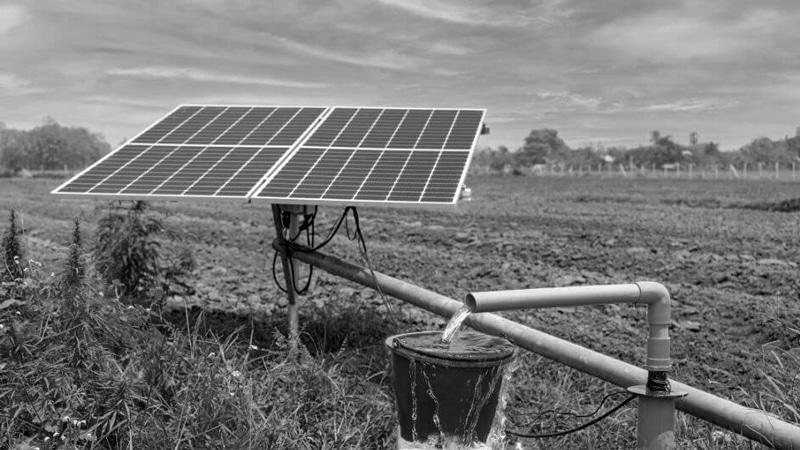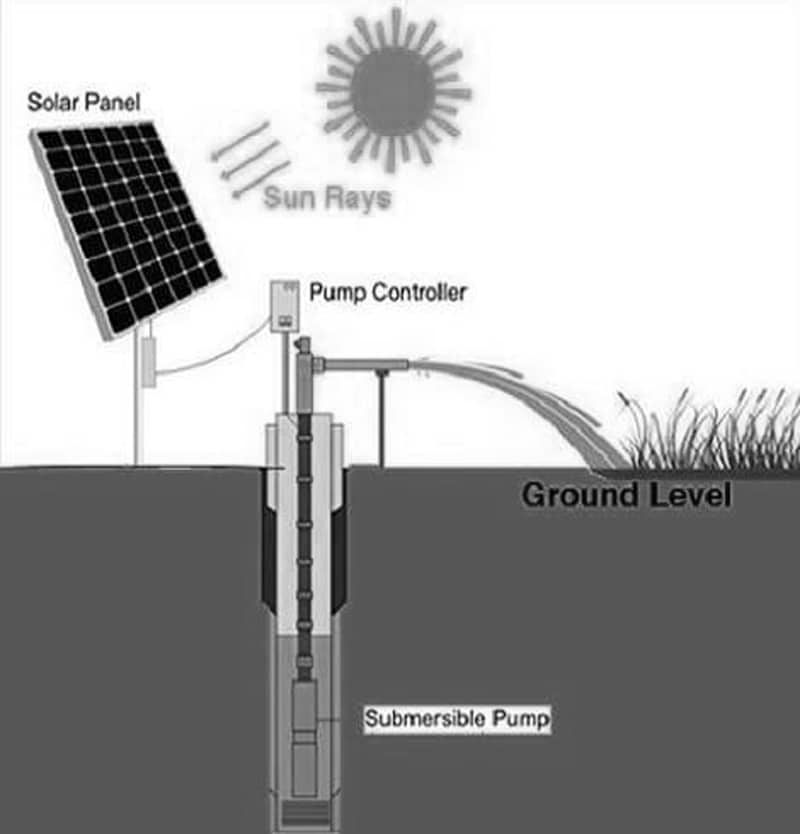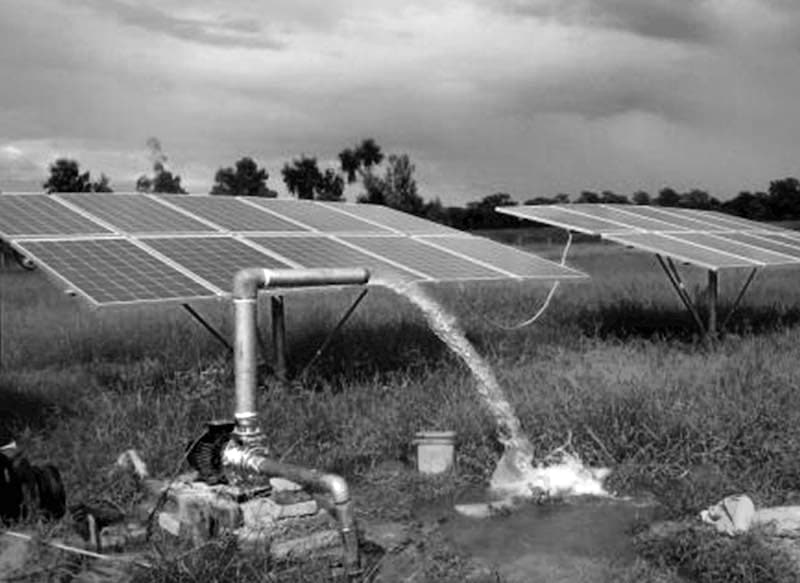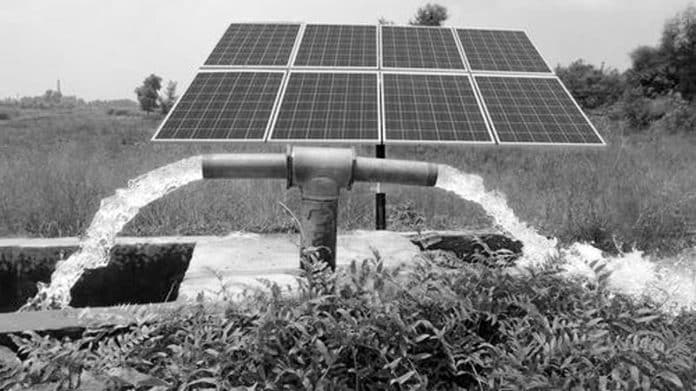The Ultimate Guide to Solar Water Pump Price in Tanzania: How to Find the Perfect Solution for Your Needs
Are you tired of relying on traditional water pumps and looking for an eco-friendly alternative? Look no further! In this ultimate guide, we will explore the solar water pump options available in Tanzania, learn about the solar water pump price in Tanzania, and help you find the perfect solution for your needs. With the rising cost of electricity and the growing concern for the environment, solar water pumps have become an increasingly popular choice for individuals and businesses alike. But how do you navigate through the various options and find the best one that fits your budget and requirements? We have got you covered. From understanding the benefits of solar water pumps to comparing prices and finding reliable suppliers, this comprehensive guide will equip you with all the information you need to make an informed decision. So, let’s dive in and discover the world of solar water pumps in Tanzania together!
Benefits of Using Solar Water Pumps in Tanzania
Solar water pumps offer a range of benefits that make them an attractive option for water pumping needs in Tanzania. Firstly, they are environmentally friendly and sustainable. Unlike traditional pumps that rely on electricity generated from fossil fuels, solar water pumps use energy from the sun, which is a renewable resource. This means that investing in a solar water pump can significantly reduce your carbon footprint and contribute to a greener future.
Secondly, the solar water pump price in Tanzania is affordable, making it a cost-effective solution in the long run. While the initial investment may be higher compared to conventional pumps, solar water pumps have lower operational costs. Once installed, they require minimal maintenance and have no fuel or electricity costs. This makes them particularly beneficial for remote areas in Tanzania where access to electricity or fuel may be limited or expensive.

Additionally, solar water pumps offer greater reliability and independence. With traditional pumps, power outages or fluctuations can disrupt the water supply, causing inconvenience and potential damage. Solar water pumps, on the other hand, operate independently of the grid and are not susceptible to power interruptions. This ensures a consistent and reliable water supply, even in remote or off-grid locations.
Factors Influencing Solar Water Pump Price
The solar water pump price in Tanzania varies depending on several factors. One of the primary factors is the pump’s capacity or power output, which determines the amount of water it can pump per day. Higher-capacity pumps tend to be more expensive. Additionally, the quality and brand of the pump can also influence its price. Well-known brands with a reputation for reliability and performance may have higher price tags.
Another factor that affects the price is the type of solar water pump. There are different types available, including submersible pumps, surface pumps, and floating pumps. Each type has its own advantages and may be suitable for different applications. Submersible pumps, for example, are ideal for pumping water from wells or boreholes, while surface pumps are suitable for shallow water sources such as rivers or lakes.
Furthermore, the cost of installation and system components can also impact the overall price. This includes the solar panels, batteries, controllers, and other accessories required for the system to function optimally. It is important to consider these additional costs when budgeting for a solar water pump.
Understanding the Different Types of Solar Water Pumps
Solar water pumps come in different types and configurations, each designed to cater to specific needs and water sources. Understanding the different types can help you narrow down your options and choose the most suitable pump for your requirements.
- Submersible pumps: These pumps are installed underwater, directly in the well or borehole. They are designed to pump water from deep sources and are typically more powerful compared to surface pumps. Submersible pumps are commonly used in agricultural applications, providing irrigation for crops or livestock.

A demonstration of how Submersible pumps work - Surface pumps: These pumps are installed above the water source, such as rivers, lakes, or reservoirs. They draw water from the source and push it through a pipe or hose to the desired location. Surface pumps are generally less expensive and easier to install compared to submersible pumps. They are commonly used for domestic water supply, small-scale irrigation, or livestock watering.
- Floating pumps: As the name suggests, floating pumps are designed to float on the water surface and pump water from the source. They are suitable for shallow water bodies, such as ponds or shallow wells. Floating pumps are often used for water circulation, aeration, or decorative purposes in gardens or small-scale water features.
Each type of solar water pump has its own advantages and limitations. It is important to assess your water source and pumping requirements to determine the most appropriate type for your needs.
Key Considerations for Choosing the Right Solar Water Pump for Your Needs
When selecting a solar water pump for your specific needs in Tanzania, there are several key factors to consider. By carefully evaluating these factors, you can ensure that you choose a pump that is not only affordable but also efficient and reliable.

- Water requirements: Determine the amount of water you need to pump on a daily basis. Consider factors such as the number of users, the volume of water required for irrigation or livestock, and any future expansion plans. This will help you determine the pump’s capacity or power output needed.
- Water source: Assess the characteristics of your water source, such as the depth, distance, and quality of the water. This will determine the type of pump that is most suitable for your specific water source. For example, if you have a deep well, a submersible pump would be the appropriate choice.
- Solar resource: Evaluate the solar resources available at your location. Tanzania is blessed with abundant sunlight, but it is important to assess the shading, orientation, and tilt of your solar panels to maximize energy production. This will ensure that your solar water pump operates optimally throughout the year.
- Budget: Determine your budget for the solar water pump system, including installation and other associated costs. Consider the long-term savings and benefits of investing in a solar water pump, as well as any available financing options or incentives that can help offset the initial investment.
- Warranty and after-sales support: Check the warranty offered by the manufacturer and inquire about after-sales support. A reputable supplier should provide a warranty for both the pump and the solar panels, ensuring that any potential issues or defects are covered. Additionally, inquire about the availability of spare parts and technical support to ensure the longevity and reliability of your system.
By considering these key factors, you can narrow down your options and choose a solar water pump that meets your specific requirements and budget.
Evaluating the Cost-Effectiveness of Solar Water Pumps
Investing in a solar water pump in Tanzania can offer significant cost savings in the long run. While the initial investment may be higher compared to conventional pumps, the operational costs of solar water pumps are considerably lower.
Solar water pumps have no fuel or electricity costs, making them ideal for areas where access to electricity is limited or expensive. Once installed, they require minimal maintenance and have a long lifespan, reducing the need for frequent repairs or replacements. Additionally, solar water pumps are not affected by power outages or fluctuations, ensuring a consistent water supply without interruptions.
To evaluate the cost-effectiveness of the solar water pump price in Tanzania, consider the following:
- Payback period: Calculate the payback period, which is the time it takes for the cost savings from a solar water pump to equal the initial investment. This will help determine the feasibility and financial viability of the investment.
- Lifetime cost: Compare the lifetime cost of a solar water pump with that of a conventional pump. Consider factors such as fuel or electricity costs, maintenance expenses, and potential system upgrades or replacements. This will give you a comprehensive view of the long-term savings and benefits of investing in a solar water pump.
- Return on investment (ROI): Assess the return on investment by calculating the savings generated by the solar water pump over its lifespan. Compare this with the initial investment to determine the percentage ROI. A higher ROI indicates a more cost-effective investment.
- Environmental impact: Consider the environmental benefits of investing in a solar water pump. By reducing reliance on fossil fuels and minimizing carbon emissions, solar water pumps contribute to a cleaner and greener environment. This intangible benefit should also be factored into the cost-effectiveness evaluation.
By conducting a thorough cost-effectiveness analysis, you can make an informed decision and confidently invest in a solar water pump that offers the best value for your money.
Finding Reputable Suppliers and Manufacturers in Tanzania
When it comes to purchasing a solar water pump in Tanzania, it is crucial to find reputable suppliers and manufacturers who offer high-quality products and reliable after-sales support. Here are some steps to help you find reputable suppliers:
- Research online: Use search engines and online directories to find suppliers and manufacturers of solar water pumps in Tanzania. Look for companies with a strong online presence and positive customer reviews. Check their websites for product information, certifications, and contact details.
- Seek recommendations: Ask for recommendations from friends, colleagues, or industry professionals who have purchased solar water pumps in Tanzania. Their first-hand experiences can provide valuable insights and help you identify reliable suppliers.
- Attend trade shows or exhibitions: Visit trade shows or exhibitions related to renewable energy or water solutions. These events often feature suppliers and manufacturers showcasing their products and services. This gives you an opportunity to interact with industry experts and assess the quality of their offerings.
- Contact industry associations: Reach out to industry associations or organizations related to renewable energy or water solutions. They can provide you with a list of reputable suppliers and manufacturers in Tanzania.
Once you have shortlisted potential suppliers, take the time to contact them and ask for more information. Inquire about their product range, warranties, after-sales support, and any certifications they may have. Request quotes and compare prices and features to ensure you get the best deal without compromising on quality or service.
Comparing Solar Water Pump Prices and Features
When comparing the solar water pump price in Tanzania, it is important to consider both the initial cost and the long-term value. Here are some factors to consider:
- Price: Compare the prices of different solar water pump models and brands. Take into account the pump’s capacity, type, and any additional components or accessories included in the package. Remember that a higher price does not always guarantee better quality, so it is important to assess the overall value for money.
- Quality and reliability: Evaluate the quality and reliability of the solar water pump. Consider factors such as the brand reputation, product certifications, and customer reviews. A high-quality pump may have a higher upfront cost but can offer better performance, durability, and longevity.
- Efficiency: Assess the efficiency of the solar water pump. Look for pumps with high solar conversion efficiency, as this will ensure optimal use of the available sunlight and maximize water pumping capacity. Pumps with efficient motors and controllers can also help reduce energy losses and improve overall system performance.
- Warranty and after-sales support: Check the warranty offered by the manufacturer. A longer warranty period indicates the manufacturer’s confidence in the product’s quality and reliability. Additionally, inquire about after-sales support, including technical assistance, spare parts availability, and maintenance services.
- System compatibility: Consider the compatibility of the solar water pump with other system components such as solar panels, batteries, and controllers. Ensure that the pump is compatible with the rest of your system to ensure optimal performance and efficiency.
By comparing prices and features based on these factors, you can make an informed decision and choose a solar water pump that meets your requirements and budget.
Financing Options for Solar Water Pumps
Investing in a solar water pump may require a significant upfront investment. However, there are several financing options available in Tanzania that can help make the investment more affordable. Here are some common financing options to consider:
- Bank loans: Many banks offer loans specifically for renewable energy projects, including solar water pumps. These loans often have favorable interest rates and flexible repayment terms. Contact local banks to inquire about their renewable energy financing options.
- Microfinance institutions: Microfinance institutions provide financial services to individuals and small businesses who may not have access to traditional banking services. Some microfinance institutions offer loans for solar energy projects, including solar water pumps. These loans are typically tailored to the specific needs and capacities of the borrowers.
- Government incentives: Check if there are any government incentives or subsidies available for investing in solar water pumps. Governments in Tanzania and other countries often provide financial incentives to promote renewable energy adoption. These incentives can help offset the initial investment and make solar water pumps more affordable.
- Crowdfunding: Crowdfunding platforms can be a viable option for financing solar water pump projects. These platforms allow individuals or organizations to raise funds from a large number of people who are interested in supporting renewable energy initiatives. Consider utilizing crowdfunding platforms to raise funds for your solar water pump project.
Before opting for any financing option, carefully evaluate the terms and conditions, interest rates, repayment schedules, and eligibility criteria. It is important to choose a financing option that suits your financial situation and aligns with your long-term goals.
Case Studies: Successful Implementation of Solar Water Pumps in Tanzania
To gain a better understanding of how solar water pumps have been successfully implemented in Tanzania, let’s explore a few case studies:
- Nguruma Village: Nguruma Village, located in rural Tanzania, faced challenges with accessing clean water for both domestic use and irrigation. With the help of a solar water pump, the village was able to establish a reliable water supply system. The pump draws water from a nearby river and supplies it to the village, providing clean drinking water and supporting agricultural activities.

Nguruma Village in Arusha, Tanzania - Ngorongoro Conservation Area: The Ngorongoro Conservation Area, a UNESCO World Heritage Site, implemented solar-powered water pumps to provide water for wildlife and livestock. These pumps ensure a sustainable water supply throughout the year, reducing dependence on traditional diesel-powered pumps and minimizing the environmental impact.
- Small-scale farmers: Many small-scale farmers in Tanzania have adopted solar water pumps for irrigation. These pumps enable farmers to cultivate crops throughout the year, improving food security and increasing income. By harnessing solar energy, farmers can access water even in remote areas without access to electricity.
These case studies demonstrate the positive impact of solar water pumps in Tanzania. They showcase how solar water pumps have helped communities, conservation areas, and farmers overcome water challenges and achieve sustainable development.
Conclusion: Make an Informed Decision for Your Solar Water Pump Investment
Investing in a solar water pump in Tanzania can provide numerous benefits, including reduced operational costs, environmental sustainability, and reliable water supply. By understanding the various factors that influence the solar water pump price in Tanzania and considering the key factors when choosing a pump, you can make an informed decision that aligns with your needs and budget.
Research reputable suppliers and compare prices and features to ensure you get the best value for your investment.
For more articles related to Technology in Tanzania, click here!
































